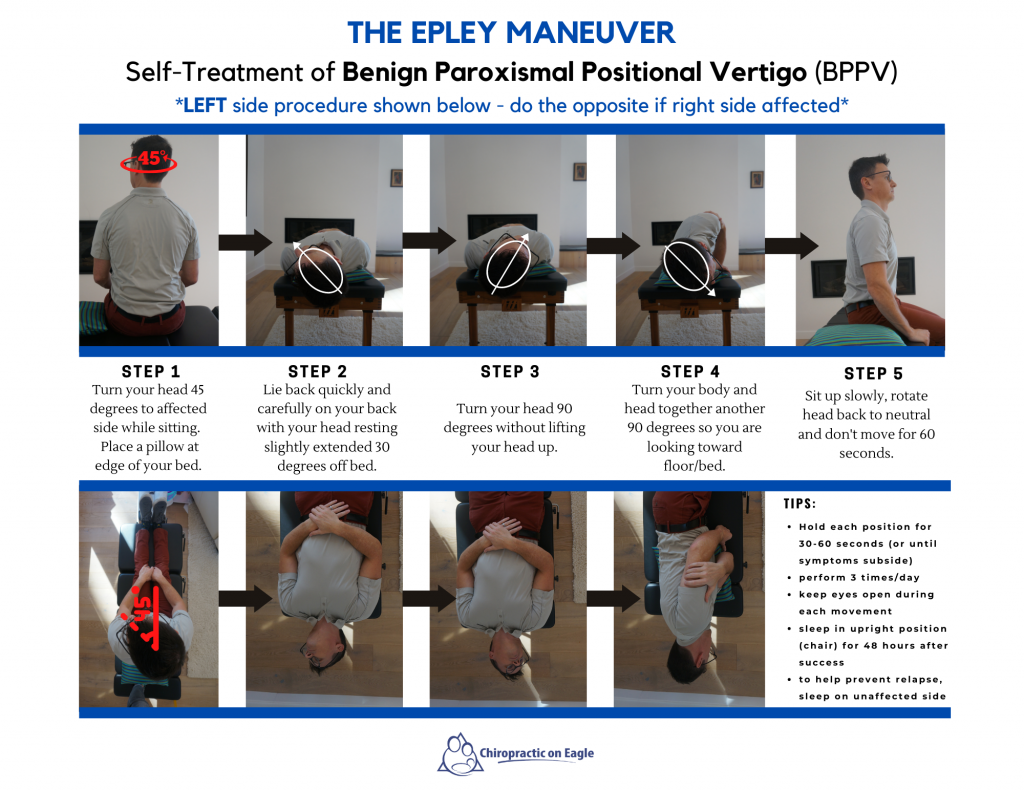3 Causes and Solutions to Vertigo

Got Vertigo?
Anyone who has ever suffered from vertigo will tell you that it is a terrible sensation. It makes you feel as though the world is spinning around you. It often becomes incapacitating because it is frequently accompanied with nausea and vomiting, loss of balance, or headaches. Unfortunately, I have seen more and more cases of vertigo in my Newmarket chiropractic office in the last few years.
Causes
In my office, the most common causes are 1) medications, 2) inner ear problems, and 3) upper cervical (neck) injuries/damage. The most common medications that have vertigo as side effects are: antidepressants, antihypertensives (high blood pressure), salicylates (e.g., aspirin), sedatives, antihistamines and some antibiotics. This would be the first thing you should check particularly if your vertigo started after beginning a medication (speak to your physician).
Another common cause of vertigo is Benign Paroxysmal Positional Vertigo (BPPV). This occurs when some of the crystals in your inner ear become dislodged and move into one of the semicircular canals. This causes the semicircular canal to become sensitive to a head position change it would normally not respond to. This makes the brain think you are moving when you are not. The treatment for BPPV we perform in our office is the Epley Maneuver. Please see below for a diagram demonstrating this technique. Please be aware that this procedure should be done under the supervision of a health care provider, as there are several contra-indications why someone should NOT have it done.
Cervicogenic Dizziness
Finally, one of the most important causes of your dizziness that often goes uncorrected (which is why vertigo can ‘come-and go’) involves the upper neck and nerves. Prior trauma or prolonged bad postural patterns can cause misalignment in the upper neck bones. The receptors in the upper neck can cause faulty motion patterns that create misinformation about body position and movement. This alters the information going from the joints to the brain, causing dizziness or vertigo (cervicogenic vertigo). The only way to know if this is a potential cause or contributing factor to your problem would be to have your neck thoroughly examined. Diagnostics such as a nerve scan and/or upper cervical x-rays can help determine if the neck is causing your dizziness.
If you or someone you know is suffering from vertigo, seek out a chiropractor who checks for problems in the upper cervical/neck area. It just could be the thing that restores balance back in your life.
Be Well,

Epley Maneuver Instructions & Vestibular Rehab Exercise
Chiropractic on Eagle
2:30 – 6:00 PMTuesday 7:30 – 10:45 AM
2:30 – 5:30 PMWednesday 2:30 – 6:00 PMThursday 7:30 – 10:45 AM
2:30 – 5:30 PMFriday ClosedSaturday ClosedSunday Closed

